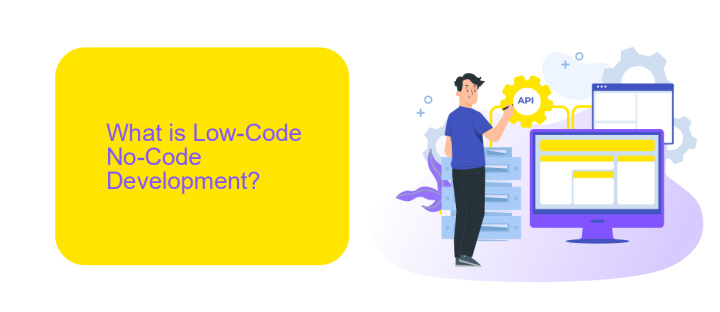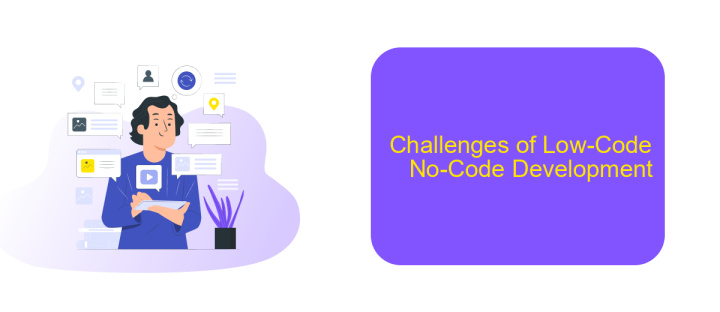What is Low-Code No-Code Development
Low-code/no-code development is revolutionizing the way software applications are built, enabling individuals with minimal programming skills to create complex applications quickly and efficiently. This approach leverages visual interfaces and pre-built components, reducing the need for extensive coding knowledge. As businesses strive for agility and innovation, low-code/no-code platforms are becoming essential tools for accelerating digital transformation and empowering a broader range of users.
Introduction
Low-code and no-code development platforms are revolutionizing the way software is created by enabling users to build applications with minimal to no coding experience. These platforms provide visual interfaces and pre-built components, allowing individuals and businesses to accelerate the development process and reduce reliance on traditional programming skills.
- Streamlined development processes
- Reduced time to market
- Lowered costs and resource requirements
- Enhanced collaboration between technical and non-technical teams
With the rise of low-code and no-code platforms, integrating various services and applications has become simpler than ever. Tools like ApiX-Drive facilitate seamless data synchronization and automation across multiple platforms, further enhancing the efficiency and functionality of applications built using these development methodologies. This democratization of software development is empowering a broader range of users to create innovative solutions and drive digital transformation within their organizations.
What is Low-Code No-Code Development?

Low-Code No-Code development is a revolutionary approach to software creation that enables individuals with little to no programming experience to build applications. By utilizing intuitive drag-and-drop interfaces and pre-built templates, users can rapidly develop and deploy software solutions without writing extensive code. This democratization of software development is particularly beneficial for businesses seeking to accelerate their digital transformation and reduce reliance on traditional IT departments.
An essential aspect of Low-Code No-Code platforms is their ability to easily integrate with various services and systems. Tools like ApiX-Drive facilitate these integrations by providing a user-friendly interface to connect different applications seamlessly. ApiX-Drive allows users to automate workflows, synchronize data, and streamline processes without the need for complex coding. This capability significantly enhances the efficiency and scalability of Low-Code No-Code solutions, enabling organizations to innovate and adapt swiftly in a competitive landscape.
Benefits of Low-Code No-Code Development

Low-code and no-code development platforms offer numerous advantages for businesses and developers alike. These platforms simplify the application development process, allowing individuals with minimal technical expertise to create functional applications quickly and efficiently.
- Accelerated Development: Low-code/no-code platforms significantly reduce the time required to develop applications, enabling businesses to respond faster to market demands.
- Cost Efficiency: By minimizing the need for extensive coding knowledge, these platforms lower development costs, making technology accessible to smaller businesses.
- Enhanced Collaboration: These tools foster better collaboration between IT and business teams, ensuring that the final product aligns closely with business needs.
- Scalability: Many low-code/no-code platforms, like ApiX-Drive, offer integration capabilities that allow businesses to easily connect their applications with other services, enhancing scalability and functionality.
- User Empowerment: Non-technical users can take charge of their projects, reducing dependency on specialized IT staff and accelerating innovation.
Overall, low-code and no-code development platforms democratize the app development process, making it more accessible, efficient, and collaborative. Services like ApiX-Drive further enhance these benefits by providing seamless integration options, allowing businesses to streamline their workflows and improve operational efficiency.
Challenges of Low-Code No-Code Development

Low-code and no-code development platforms offer numerous advantages, but they also present several challenges. One of the primary concerns is the potential for limited customization. While these platforms provide a range of pre-built components, they may not meet all specific business requirements, leading to constraints in creating highly tailored solutions.
Another challenge is the risk of shadow IT. As non-technical users can build applications without involving the IT department, it can result in a lack of oversight and governance. This can lead to security vulnerabilities, compliance issues, and difficulties in maintaining and scaling the applications.
- Limited customization options
- Risk of shadow IT
- Integration complexities
- Scalability concerns
- Dependency on platform providers
Integration complexities can also pose significant challenges. While platforms like ApiX-Drive facilitate seamless integration between various applications and services, ensuring smooth data flow and interoperability can still be a daunting task. Moreover, dependency on platform providers means that any changes or discontinuations in the platform can adversely affect the applications built on it. Therefore, businesses need to carefully evaluate these challenges before adopting low-code or no-code development solutions.
Conclusion
Low-Code No-Code development represents a transformative shift in how software applications are created, enabling a broader range of individuals to participate in the development process. By reducing the need for extensive coding expertise, these platforms empower business users and non-developers to innovate and solve problems more efficiently. This democratization of development not only accelerates time-to-market but also fosters increased collaboration between technical and non-technical teams.
Moreover, the integration capabilities offered by platforms like ApiX-Drive further enhance the utility of Low-Code No-Code solutions. By simplifying the connection of various applications and automating workflows, ApiX-Drive allows users to seamlessly integrate disparate systems without the need for complex coding. This facilitates a more streamlined and cohesive operational environment, ultimately driving greater productivity and innovation. As the demand for agile and user-friendly development tools continues to grow, Low-Code No-Code platforms are poised to play a crucial role in the future of software development.
FAQ
What is Low-Code/No-Code Development?
Who can benefit from Low-Code/No-Code platforms?
How secure are Low-Code/No-Code platforms?
Can Low-Code/No-Code platforms integrate with existing systems?
What are the limitations of Low-Code/No-Code Development?
Apix-Drive is a universal tool that will quickly streamline any workflow, freeing you from routine and possible financial losses. Try ApiX-Drive in action and see how useful it is for you personally. In the meantime, when you are setting up connections between systems, think about where you are investing your free time, because now you will have much more of it.

